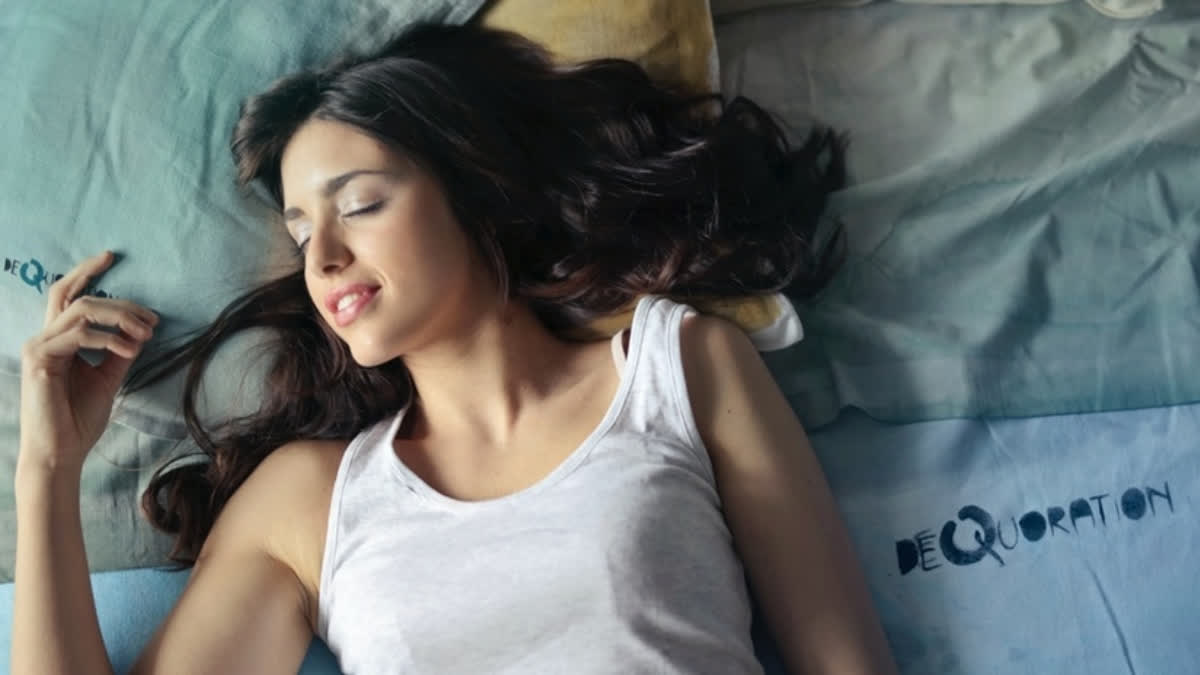New Delhi: Sufficient sleep is a fundamental aspect of good health. However, over 30 per cent of people suffer from insomnia, and this figure increases to 40 to 60 per cent for those over 60 years old. In India, sleep disorders are prevalent, with the country ranking as the second most sleep-deprived nation in the world.
According to a Lancet study, approximately 5.4 per cent of Indians aged 30-69, or around 28.8 million people, are at moderate or severe risk of sleep apnea, which is a prevalent sleep disorder. Inadequate sleep has been linked to several health problems, including obesity, heart disease, diabetes, high blood pressure, depression, a suppressed immune system, and endocrine disorders.
Studies have also shown a correlation between lack of sleep and premature ageing, as well as the exacerbation of chronic diseases such as Parkinson's disease, multiple sclerosis, and kidney disease. Sleep specialists caution that individuals with insomnia should avoid becoming reliant on medication and instead consider lifestyle adjustments and rule out underlying conditions such as depression, which may be the root cause of their sleeplessness. Incorporate therapies and relaxation rituals to promote better sleep, this is where yoga and naturopathy can come in handy:
Early and Light Dinner:
For optimal sleep, it is recommended to consume dinner at least two-three hours prior to bedtime and to include easily digestible foods. Consuming a heavy meal close to bedtime can diminish sleep quality and hinder digestion. Research also suggests that having an early breakfast is beneficial, as eating late increases the risk of acid reflux and acidity. It is advisable to avoid or significantly limit alcohol intake in the evening, as excessive consumption can cause significant sleep disturbances, despite its initial calming effects.
Acupuncture:
Acupuncture is a technique that involves inserting a small needle through the skin at a specific point on the body. This process can help alleviate stress, depression, and pain, and is commonly used to treat insomnia. Acupuncture is considered one of the safest methods for treating insomnia.
In a small study conducted in 2017, researchers administered traditional acupuncture or sham acupuncture (where needles are not inserted as deeply) to 72 individuals with primary insomnia. Participants received treatment three times a week for four weeks. The results showed that acupuncture was more effective at improving insomnia symptoms, sleep efficiency and total sleep time during treatment. Sleep awakenings and self-rated anxiety also significantly improved two and four weeks after treatment.
Massage Therapy:
Massage therapy is a well-known stress-reducing technique that can help release the tension we accumulate throughout the day. This therapy can improve blood circulation and significantly alleviate bodily pain, which can prevent individuals from achieving a restful night's sleep.
Moreover, it can also unblock and release negative energy, which may contribute to overall discomfort. The calming effect of massage on the body and mind can make it easier for people to switch off and fall asleep. A massage performed in the late evening, in particular, can promote a good night's sleep.
Yoga:
Yoga and meditation are powerful tools that can help address the underlying causes of sleep issues, such as stress, anxiety, and depression, without any negative side effects. These ancient practices serve as relaxation techniques, helping to quiet the mind and calm the body, leading individuals toward a state of inner peace.
Practicing pranayama and meditation before bedtime can help address the root causes of sleep issues. In fact, a study reported that 55 per cent of yoga practitioners experienced improved sleep, with over 85 per cent reporting decreased levels of stress. Furthermore, there are multiple studies that have demonstrated the positive impact of yoga on sleep for individuals from various backgrounds.
